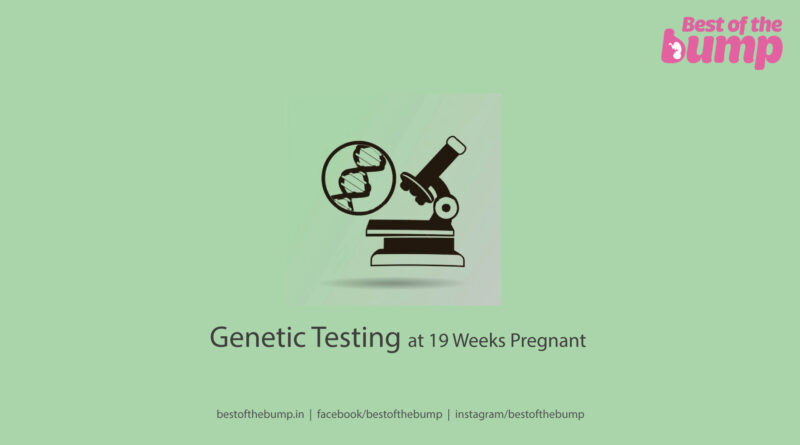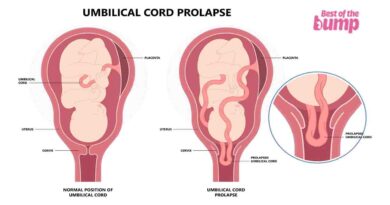Genetic Testing at 19 Weeks Pregnant
Genetic Testing, as you navigate the transformative journey of pregnancy, modern medical advancements offer a range of genetic testing and prenatal screening options to ensure the well-being of both you and your developing baby. It’s crucial to engage in open discussions with your healthcare provider to determine which tests are suitable for your specific situation. Around the 19-week mark, a variety of genetic tests and prenatal screenings become available, allowing you to gain insights into your baby’s health and development.
Exploring Genetic Testing and Prenatal Screening

During pregnancy, genetic testing and prenatal screening play a pivotal role in identifying potential genetic abnormalities and birth defects. These tests provide valuable information that can guide decisions about medical care and interventions, ensuring the best possible outcomes for you and your baby.
1. Sequential Integrated Screen
The sequential integrated screen is a two-part screening test that involves analyzing maternal blood samples. The first part is typically performed between weeks 10-13 and is accompanied by a nuchal translucency ultrasound, measuring the fluid behind the baby’s neck. The second part occurs during weeks 15-20. This test examines six fetal proteins and can identify approximately 92% of pregnancies with Down syndrome. It offers an early glimpse into your baby’s health and development.
2. Serum Integrated Screen
Similar to the sequential integrated screen, the serum integrated screen also analyzes maternal blood for six fetal proteins. It’s carried out during weeks 10-13 and repeated between weeks 15-20. This test is especially useful when a nuchal translucency ultrasound is not available. It can identify around 88% of pregnancies with Down syndrome. Like the sequential integrated screen, it provides valuable insights into potential genetic abnormalities.
3. Quad Marker Screen
Performed between weeks 15-20, the quad marker screen assesses maternal blood for four circulating fetal proteins. This test can identify about 79% of pregnancies with Down syndrome. It’s an option for those who haven’t undergone the first part of the serum and sequential tests. For many, it’s also the second part of these comprehensive screening tests. The quad marker screen offers a mid-pregnancy glimpse into your baby’s health status.
4. Gestational Diabetes Evaluation
During the second trimester, your healthcare provider might suggest evaluating you for gestational diabetes. This involves consuming a sugary liquid and then having your blood glucose levels checked. This screening is essential for identifying and managing gestational diabetes, which can affect both your and your baby’s health.
5. Genetic Amniocentesis
Genetic amniocentesis is a diagnostic test performed after the 15th week of pregnancy. This procedure involves taking a small sample of the amniotic fluid surrounding the baby. It’s often recommended for women with abnormal prenatal screening results, previous chromosomal abnormalities, a family history of genetic issues, known carrier status (for males or females), or those over the age of 35. While it’s a more invasive procedure, genetic amniocentesis provides definitive information about certain genetic abnormalities.
6. Level 1 and Level 2 Ultrasounds
Between weeks 17 and 20, a level 1 ultrasound is conducted to assess the baby for visible birth defects using ultrasound imaging. This thorough examination helps identify potential issues that might require further attention. If any abnormalities are detected or if other screening tests suggest concerns, a level 2 ultrasound may be recommended. It’s important to note that not all birth defects can be detected through ultrasounds alone.
Navigating Genetic Testing and Prenatal Screening

Genetic Testing, as you reach the 19-week mark of your pregnancy, the realm of genetic testing and prenatal screening becomes more accessible. Engaging in discussions with your healthcare provider empowers you to make informed decisions about which tests align with your individual circumstances and preferences. These tests provide crucial insights into your baby’s health and development, offering reassurance and guidance throughout your pregnancy journey. Embrace the advancements in medical science that allow you to connect with your baby’s well-being on a deeper level and take proactive steps to ensure a healthy start to their life. Remember that each test contributes to the mosaic of care and attention you provide for your baby’s future.




